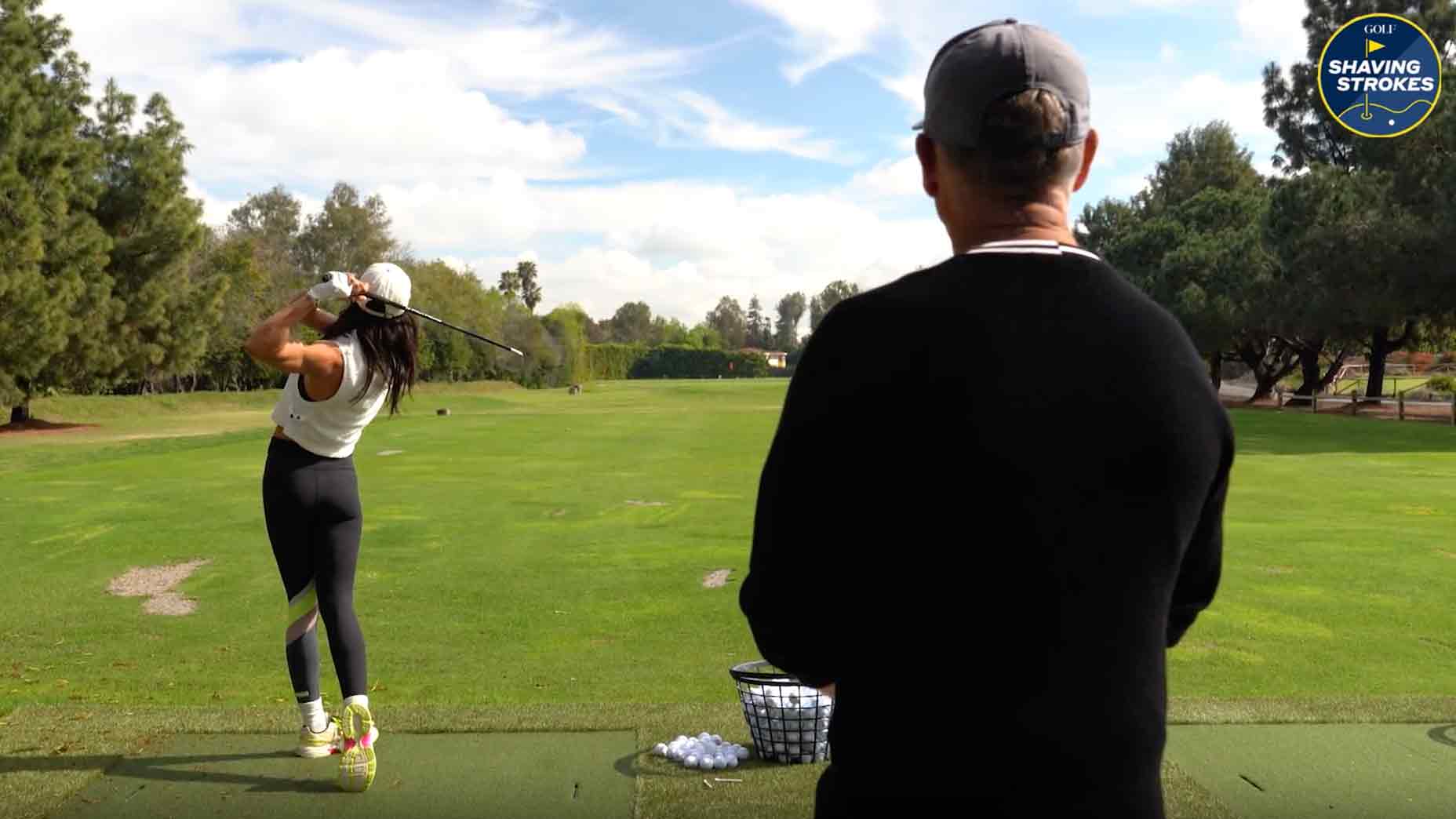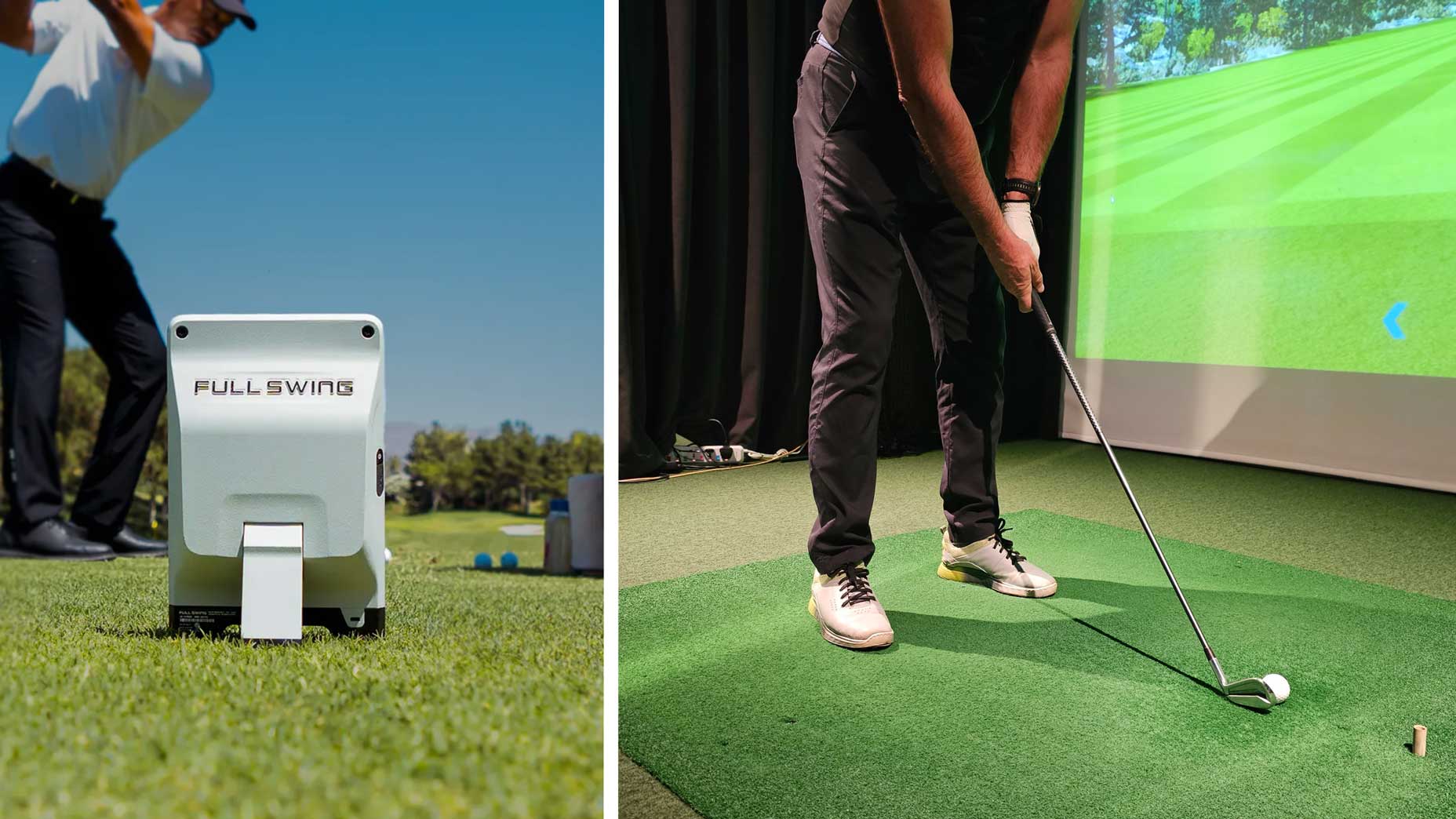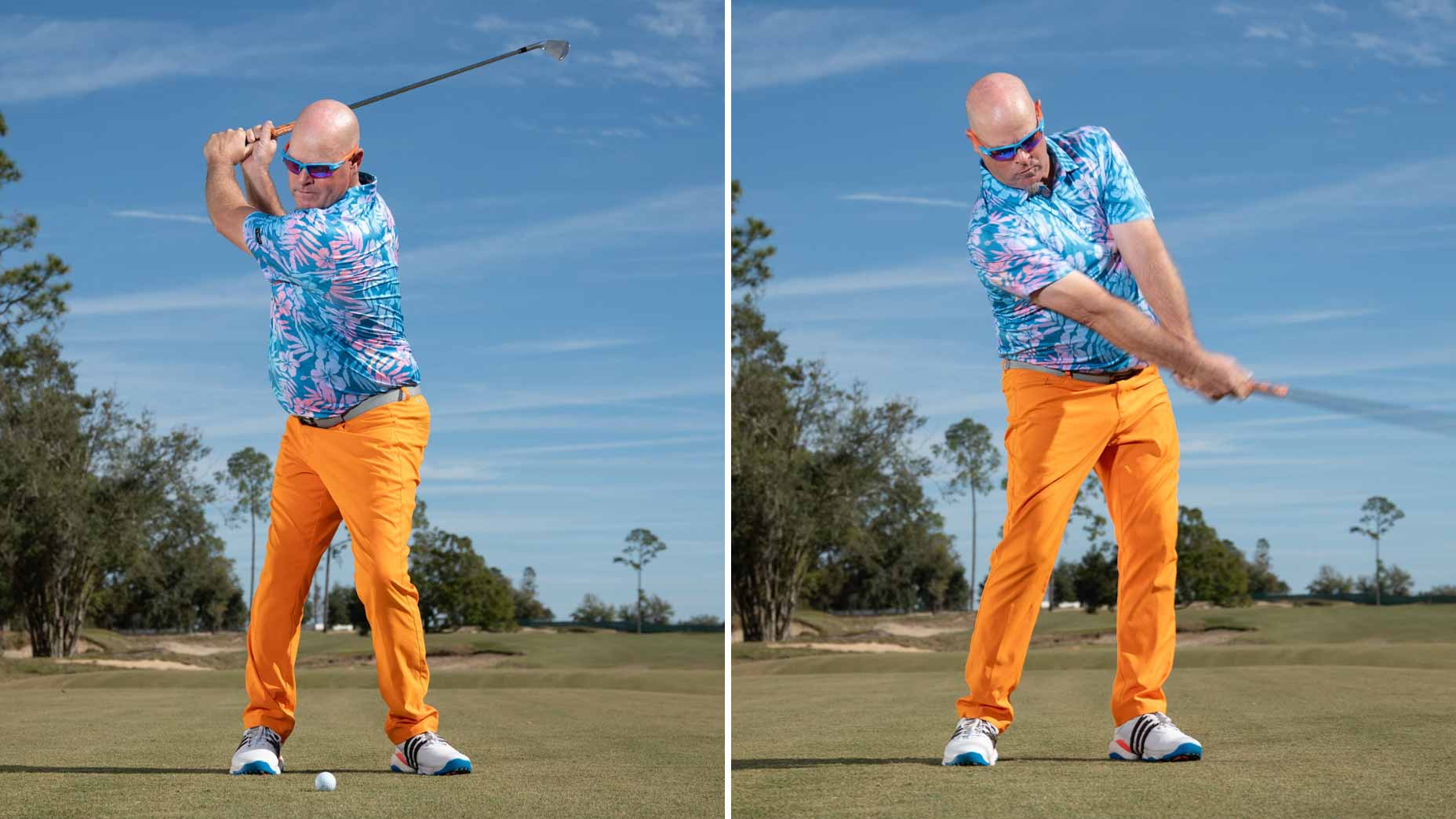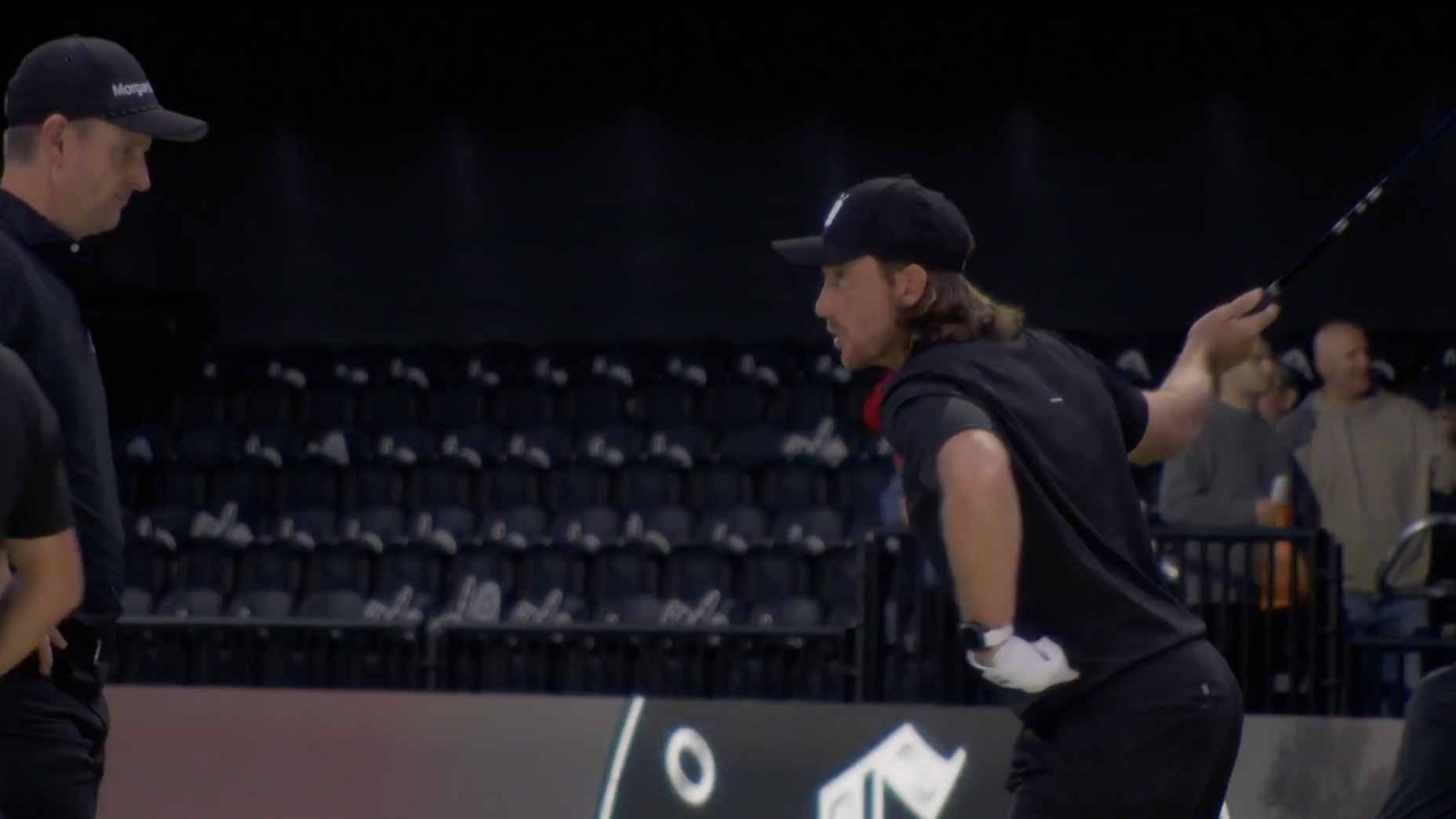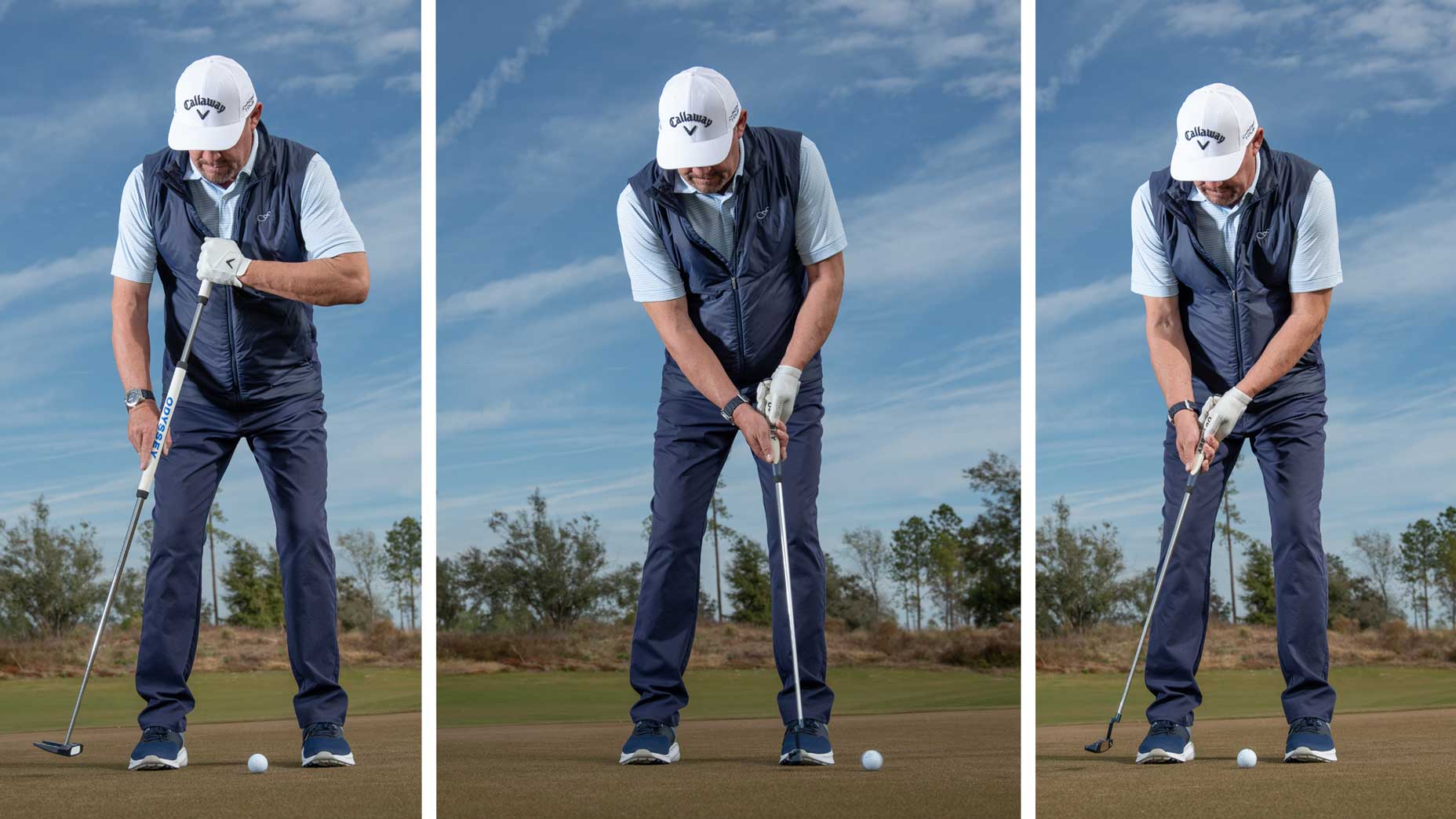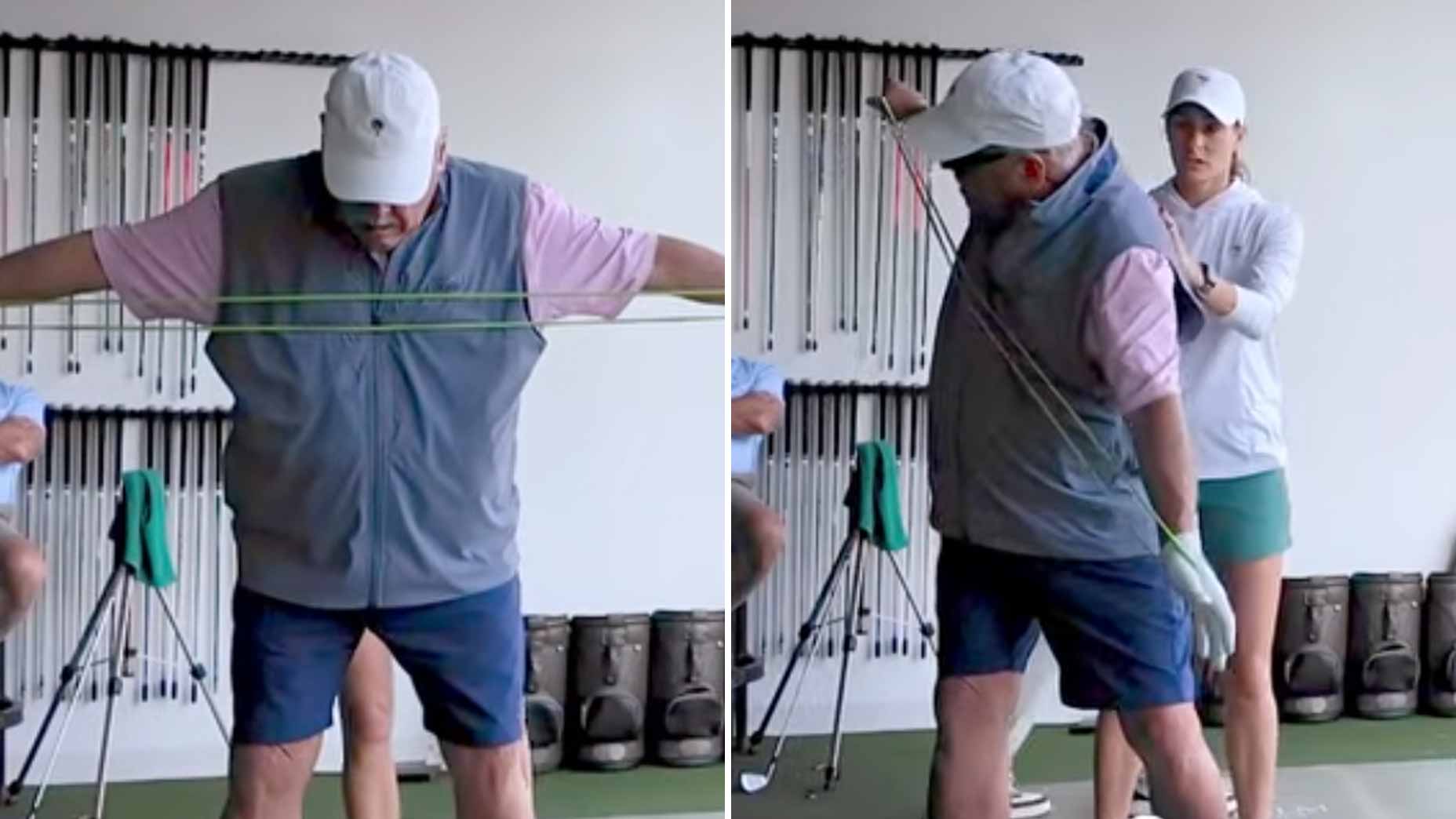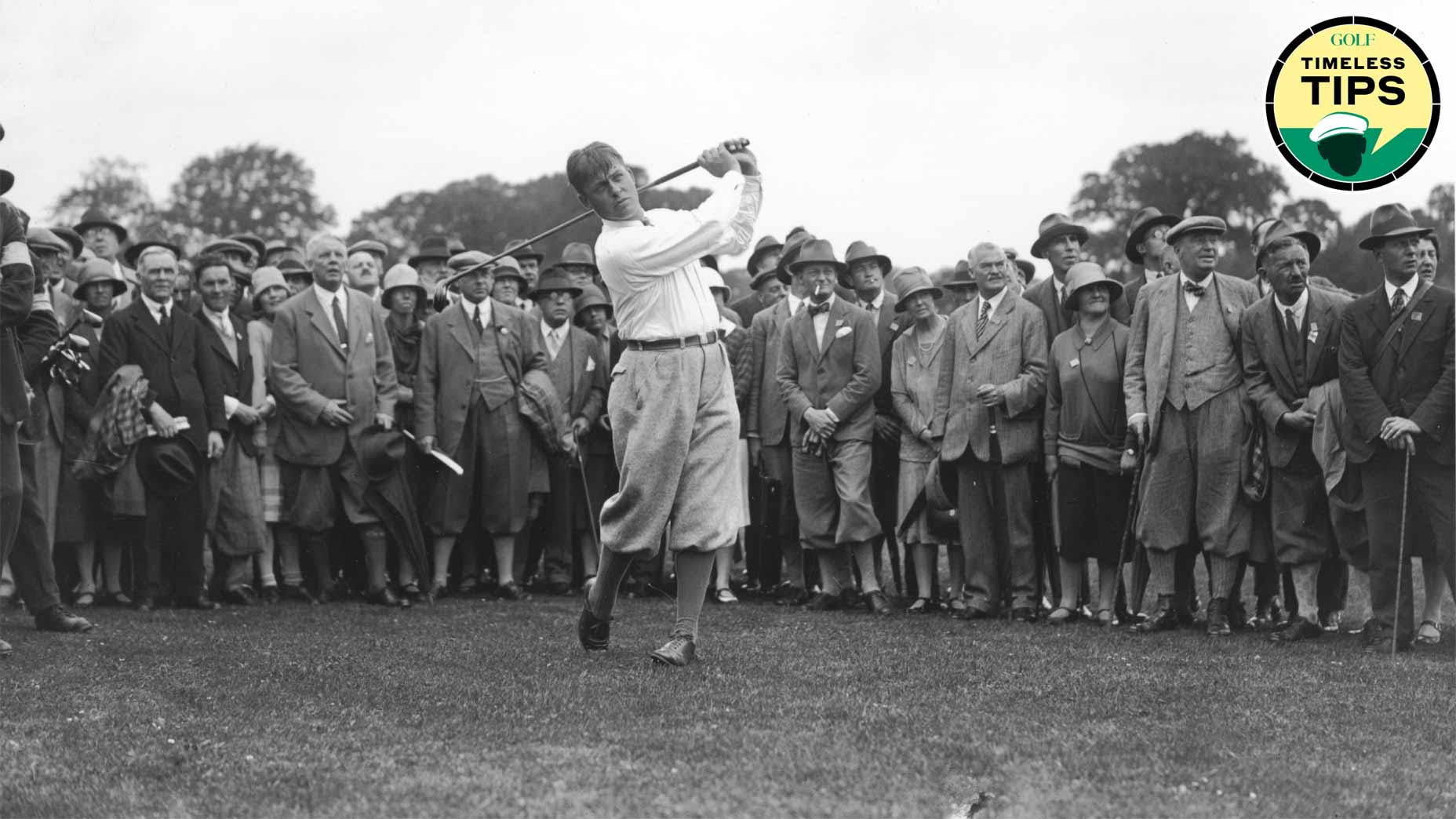Whether you actually have a go-to warm-up routine or not, every golfer should be stretching and loosening up before playing a round. Now, does that always happen? Probably not, since many of us (myself included) often run late for tee times and don’t really take the proper time to dial in our body and minds prior to teeing off.
But if you want to perform well on the test, you need to study, right? So treat a round of golf exactly the same way.
To help, GOLF Top 100 Teacher Jamie Mulligan offers up his favorite warm-up routine, and has former LPGA pro Veronica Felibert walk through the steps to use in order to get ready for the round ahead.
The video below explains it all.
Top teacher shares his favorite golf warm-up routine
As most of us know, many amateur players just head to the practice area before a round and either try bombing their driver or mindlessly hitting a bunch of balls around the range. But none of that is especially helpful in preparing you for 18 holes, so Mulligan and Felibert say you should be more intentional with your warm-up routine.
Here’s what Mulligan suggests doing before your next round.
Use a short iron
Mulligan begins the warm-up routine with Felibert using a short iron and just simply taking some light practice swings.
“We’ve got a short iron, and I want you to make me some really slow-motion practice swings,” he instructs Felibert. “Just turn the club up, let it fall down, and just let your body go with it.”
This warm-up isn’t just to help get your body loose — it’s to also help get your sequencing down, with Mulligan saying it’s anti-speed training — which so many players crave when they’re on a driving range.
“Everybody wants to make speed so much in the golf swing, but you’ve got to sequence the right way in order to do it,” he adds.
As Felibert hits some balls, Mulligan reminds her to stay “quiet” all the way through her swing, and just slowly go through her sequencing.
“Do it a little quieter and just a little smoother, letting the ball to naturally get in the way while you do it,” he says.
Keep your head still
While most golfers don’t think about balancing a water bottle on their head during a swing (and rightfully so), Mulligan says the visual can help during your warm-up routine.
He then walks over and puts a water bottle on Felibert’s head to help explain his point.
“Imagine you have a bottle of water on your head and you didn’t want anything to spill,” he says.
He then has Felibert take her swing, keeping everything smooth and quiet, with her body naturally rotating all the way through impact.
“What I really like about this warm-up is taking the groove to the next level,” he adds. “So now make the ‘water’ even quieter as you swing. It should almost feel lazy.”
Use 3 golf balls for ‘progressions’
In this drill, Mulligan has Felibert hit three golf balls, but does so with one purpose: To control her distance by varying her backswings.
Felibert lines up the three balls on the practice mat, and Mulligan describes how he envisions the length of her backswing before hitting each.
“I imagine this as a clock, with [her taking the club back to] 9 o’clock, 10 o’clock, 11 o’clock and then 12 o’clock,” he explains.
The goal is to hit all three balls with the same pace, energy and tempo at different “times” on the clock, which helps dial in your ball-striking and distance control — all without using a lot of effort.
This is a good pattern drill, which Mulligan thinks is how “our minds learn.”
Try a kick-start drill
Mulligan says that everybody needs to make a pivot or shoulder turn in order to get the club back, so he suggests using a kick-start drill — which helps loosen up the area between the waist and the upper body.
Using a separate golf club, Mulligan helps Felibert start her backswing, pushing back her lead shoulder as if he’s the starting trigger.
“I use this kick-start drill by just turning her [upper body] and letting her swing,” he explains. “That basically feels like [she] didn’t do anything.”
Mulligan then combines this drill with the idea of the water bottle resting on her head, which emphasizes the need to stay in tempo and be still all the way through the swing.
Finally, you can introduce the driver
We’ve come all this way and have yet to use the driver — but don’t worry, because it’s finally time to let the big dog eat.
So Mulligan says that this is all about dialing in your aim off the tee, making sure you know exactly where you want the ball to land as you seek fairways.
“Once you get the driver out near the end of your warm-up, I like the idea of getting an aim stick going down there across your feet,” Mulligan says. “Now you’re going to take everything we’ve done in the warm-up and groove in a perfect routine as casual as you can, letting the ball get hit with your swing.”
While you’re using your driver here, the goal isn’t to gain swing speed or maximize distance during the warm-up. Instead, it’s to make sure you’re aimed and aligned properly, which should be able to be replicated during your round.
Finally, Mulligan says this is the type of warm-up routine that he’d use with a pro-level player — with the top teacher working with the likes of Patrick Cantlay and Nelly Korda.
“This would be a warm-up that we’d go through and would be similar to what I’m seeing from most Tour players,” he adds. “So the first thing you’re doing is getting your body light and comfortable, then you’re just trying to get a little mantra in order to make your motion — which, in this case, is to stay tall and allow the club to fall down.”
